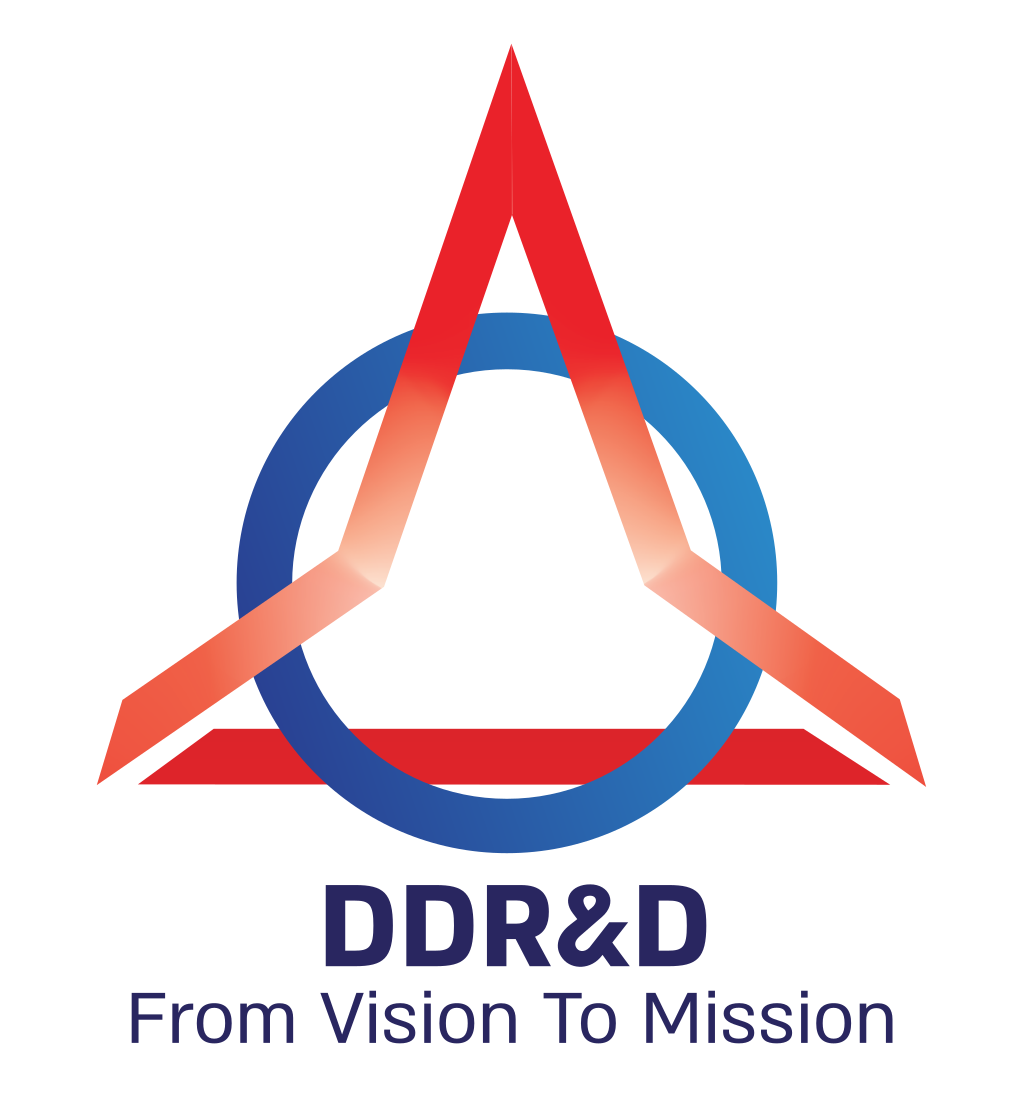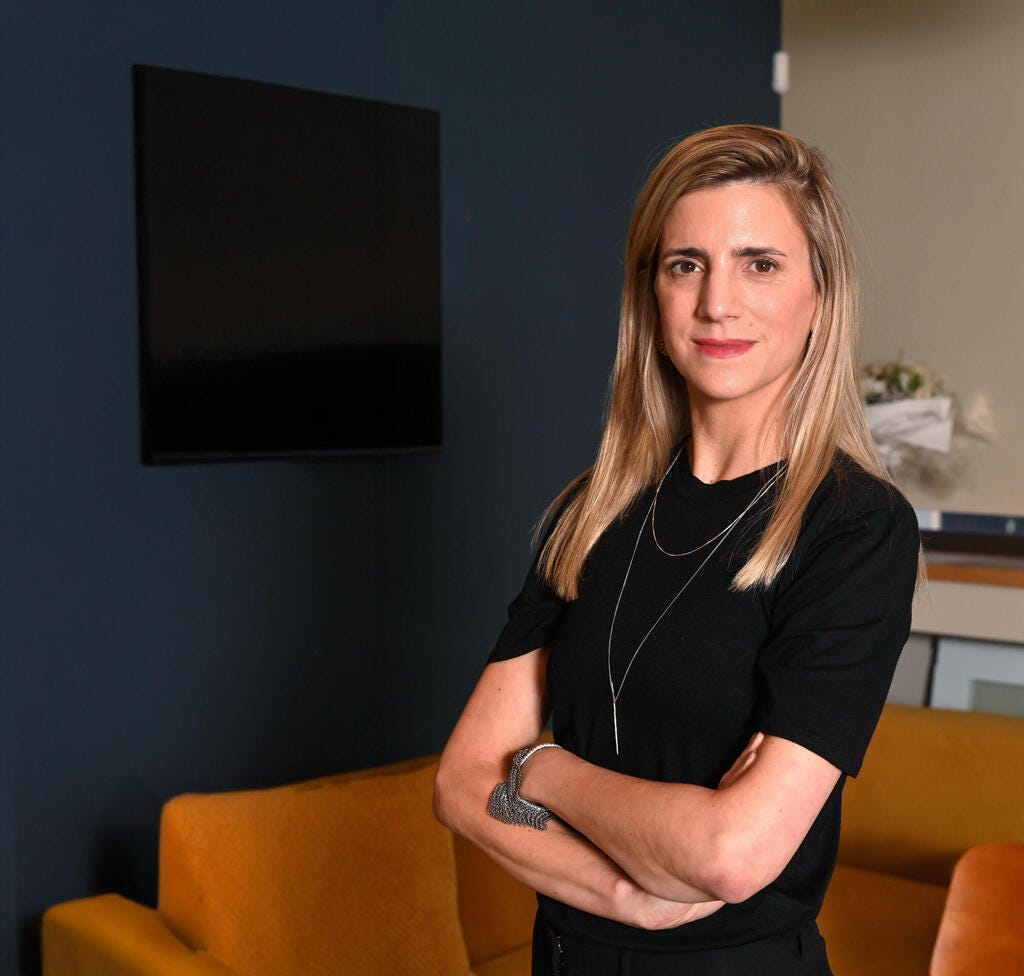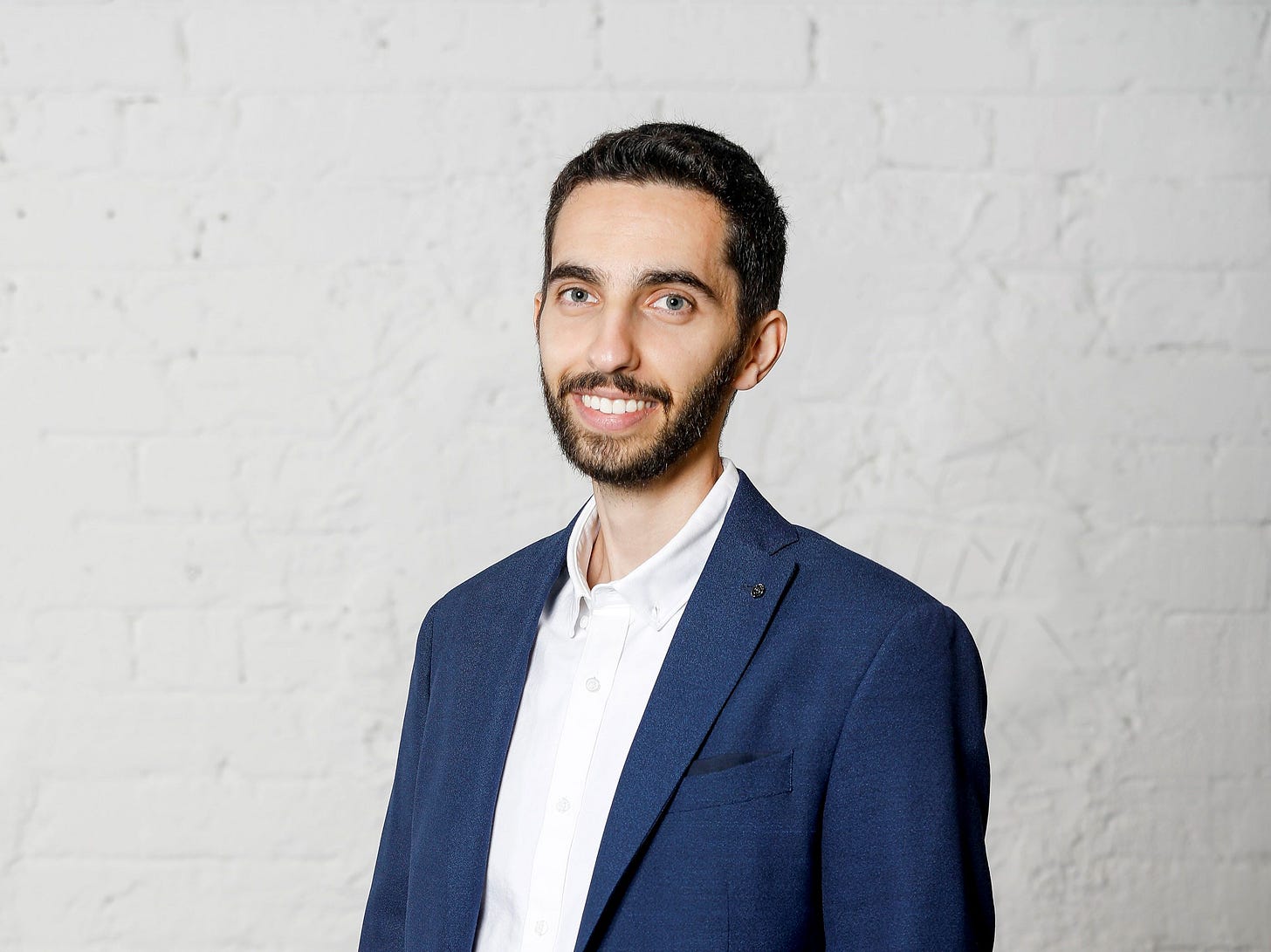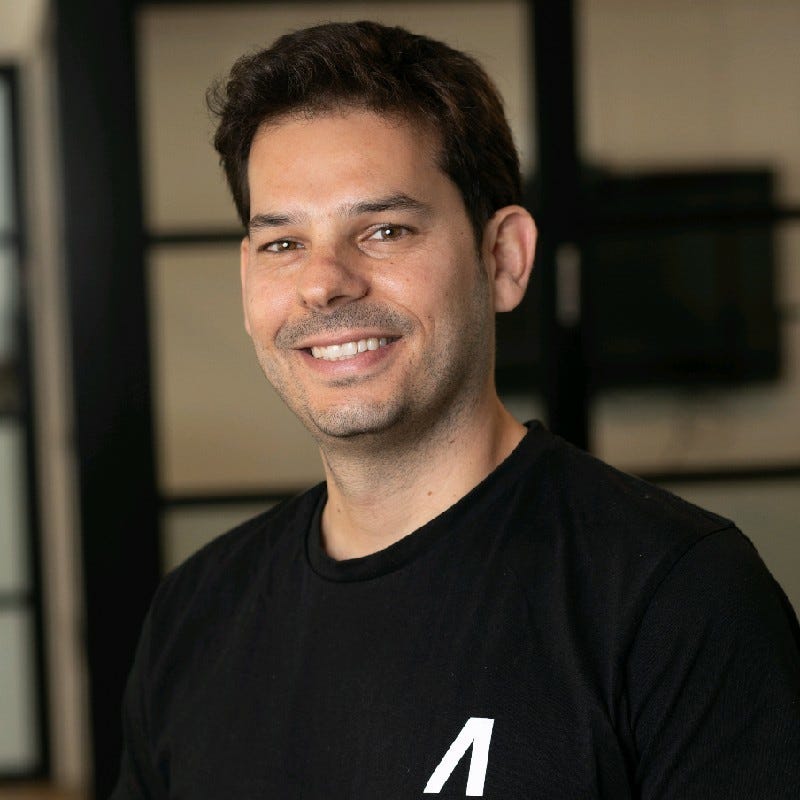Israel's Military Seeks AI Independence
On Independence Day, an exclusive look into the Israel Defense Force’s quest to use AI without losing control over classified data.
Today is 1 May, 2025. Day 573 of the October 7 War. It’s also Independence Day, a subdued one this year, like last year. Here’s hoping next year will be better. Today’s big story is an exclusive look into the Israel Defense Force’s quest to use AI without losing control over its classified data. As usual—even though this is just the 4th Edition of Israel Tech Insider!— read on for smart takes on all the most important news, investments, people moves, and opportunities happening right now in the Israeli tech industry.
More about this newsletter. Catch up on previous editions here and here.
If you haven’t subscribed yet please do. And please share this newsletter with anyone you think will find it helpful.
Israel’s Military Wants AI Independence—Without Losing Control Over Classified Data
TL:DR: The Israeli army is racing to harness artificial intelligence without surrendering control of its most sensitive data to foreign cloud providers.
A new tender from Israel’s Ministry of Defense offers a revealing glimpse into the future of military technology. At its core is a simple but difficult demand: the ability to harness massive artificial intelligence computing power without surrendering control over sensitive or classified data.
The tender—Computability of AI/ML within External Computing Environments for Secure Classified Workloads— is scheduled to close on June 1st, 2025. It comes from the Directorate of Defense Research & Development (MAFAT), Israel’s version of DARPA.
Today, organizations that want to use advanced AI tools face a tradeoff. They can build their own expensive infrastructure, which is often too slow and costly to scale. They can rent computing power from large cloud providers, but that requires trust—trust that data will remain private, systems will stay secure, and infrastructure will resist cyberattacks. For militaries, that trust is necessary but insufficient.
Israel’s defense establishment is trying to escape this bind. It is seeking a way to process sensitive AI workloads using external infrastructure—such as public cloud servers—while maintaining complete, technical sovereignty over the data. Not legal promises. Not contractual safeguards. Actual technological control, verifiable in real-time. The requirements are ambitious. The military wants secure computing environments enforced directly by hardware, without relying on traditional software protections that are vulnerable to attack. They envision systems that continuously verify their own integrity, that are resistant even to future threats like quantum computing, and that allow no one—cloud providers, infrastructure operators, or even insiders—access to the data.
Here are the requirements presented in the tender:
Hardware-level trust
“Eliminate all vulnerable virtual-machine or hypervisor layers. Leverage on-chip secure execution environments (e.g. Intel SGX, TDX) and equivalent secure enclaves in modern GPUs.”
Live integrity proofing
“Implement an end-to-end attestation chain from silicon up through the application layer using short-lived certificates or token mechanisms to prove integrity at every stage of computation.”
Owner-only data access
“Ensure that only the data owner can decrypt or access sensitive inputs or model outputs—no operator, cloud-provider staff or attacker may do so under any circumstances.”
Quantum-safe encryption
“All encryption, key-exchange and attestation protocols must remain secure against foreseeable quantum-computing attacks.”
Cloud-scale without slowdown
“Scale GPU workloads across multiple public clouds and data-centers without introducing significant latency or degradation in throughput for AI/ML training or inference. Avoid the typical performance penalties of software-only encryption or virtualization.”
Geographic lock-down
“Enforce strict geographic or jurisdictional policies on where decrypted data and computation can reside. Provide verifiable logs and proofs that processing never leaves approved enclaves.”
Resilience against tomorrow’s threats
“Defend against advanced persistent threats, zero-day vulnerabilities in virtualization layers, supply-chain compromises and emerging quantum-era attacks.”
The stakes are high. Artificial intelligence is becoming central to modern military operations: from intelligence analysis and logistics to cyber defense and battlefield decision-making. Nations that fail to harness AI effectively will fall behind. But nations that surrender their data to foreign infrastructure providers may find themselves dependent—or worse, compromised. Israel’s challenge reflects a broader strategic dilemma facing governments worldwide. In an era where computing infrastructure is largely controlled by a handful of global technology firms, how can states maintain sovereignty over their most critical digital operations?
The military’s request is clear: in the next era of warfare, operational advantage will belong to those who can leverage global AI capabilities without losing control of their data. Trust is no longer a strategy. Verification—and full sovereignty at the hardware level—will define power. Israel is not alone in facing this problem. But its military is one of the first to say, bluntly, that new rules of engagement are needed for the AI age.
///
Israeli Biotech Prepares for End of Animal Testing
TL:DR: Israeli biotech is leading the shift from animal testing to AI and organ-on-chip drug trials.
The FDA’s April 2025 timeline to phase out animal testing has opened a new lane for Israeli biotech firms developing organ-on-chip and AI-based testing alternatives. The move follows the FDA Modernization Act 2.0, which made non-animal methods legally viable in 2022—but now there’s urgency, with a 3–5 year implementation clock ticking.
Startups like Tissue Dynamics and Quris Technologies are already in motion. Tissue Dynamics, led by Prof. Yaakov Nahmias, can test 19,000 miniaturized human organs simultaneously—each equipped with sensors that detect drug effects missed by animal models. Quris, which recently raised $37 million, uses AI to simulate human reactions with lab-grown tissue chips. Nurami Medical takes a different angle: replacing animal-derived materials in tissue repair with synthetic nanofibers. Its ArtiFascia product cleared FDA review in 2023.
As the FDA actively champions alternatives like AI modeling, organoids, and human-cell chips, Israeli startups are well-positioned to lead the shift toward ethical—and possibly more predictive—drug testing.
////
Analysis of 2025 Israeli M&A Deals and Trends
TL:DR: Tech sector sees surge in modest mergers amid funding drought
Israel’s tech industry traditionally punches far above its weight, but in 2025, its weight category is a modest welterweight (between lightweight and middleweight). In the first months of 2025 around 20 Israeli startups were acquired, mostly by American companies, with disclosed deal values typically in the tens of millions of dollars rather than blockbuster sums, a list of 2025 Israeli M&A deals Calcalist Tech shows. The acquisitions are concentrated in Israel’s forte sectors – cybersecurity and fintech lead the pack – reflecting sustained global demand for its expertise. Notably, many targets are young companies (often under five years old) opting for early exits amid a venture funding drought. Key backers have been cashing in: several startups had high-profile investors or corporate partners (for example, cybersecurity firms boasting contracts with US defense clients) that validated their technology and attracted buyers. The list also reveals repeat buyers; U.S. tech giants and cybersecurity firms have snapped up multiple Israeli startups, underscoring Israel’s role as an innovation hub feeding larger platforms. This spate of bite-sized deals suggests a more pragmatic phase for the “Start-Up Nation,” as founders trade unicorn dreams for integration into the strategies of international tech giants.
///
Analysis of The 50 Most Promising Israeli Startups (2025)
TL:DR: Israeli startups in 2025 are ditching hype for focus—building lean, specialized tools aimed at global markets, not unicorn dreams.
In the shadow of war, political dysfunction, and shaky global markets, Israeli startups aren’t chasing buzzwords or billion-dollar valuations anymore. They're building smaller, sharper, more durable companies. Calcalist’s 2025 list of the 50 most promising startups reveals a tech ecosystem that has changed course—from sprawling ambition to focused execution.
Here are the five clearest trends shaping Israel’s innovation economy right now.
1. Software vs Hardware: Two Roads, Both Taken Some startups are betting on pure software. Blockaid (ranked 8) scans billions of crypto transactions to detect fraud and theft—no physical product, just code. Others, like Quantum Machines (2), are deep into hardware, building control systems for quantum computers. This split shows that investors are backing both intangible tools and hard tech with real-world physical infrastructure.
2. Hyper-Specialized, Not All-in-One Forget trying to be the next Salesforce. Today’s Israeli startups solve one problem really well. qbiq (5) can design architectural office layouts in a day—what used to take architects weeks. Sensi.ai (18) listens for signs of medical trouble in elderly patients using AI-powered audio monitoring. Panax (25) helps companies predict tariffs and manage cash flow. These startups aren’t chasing scale; they’re building deep expertise first.
3. Automate the Tedious Stuff Startups are going after the jobs nobody wants to do. Anecdotes (23) automates compliance paperwork—turning hours of audit prep into a few clicks. ForSight Robotics (16) is tackling the global shortage of eye surgeons with surgical robots that can do procedures more precisely than the human hand. The common theme: replace the manual process, sell the automation.
4. Built for the World, Not Just for Israel Gone are the days when startups tested locally, then expanded. Kela (6) tested its defense software in war-torn Ukraine. Cyber automation startup Torq (19) grew from a few million dollars in 2023 sales to projecting $100 million ARR in 2026—mostly from U.S. customers like Chipotle, PepsiCo, Procter & Gamble, Siemens, Telefonica, and the World Economic Forum. Today’s companies launch with a global mindset from day one.
5. Big Money, Narrow Focus Investors are writing huge checks for companies solving very specific problems. Upwind (20) raised $180 million to secure cloud systems while they’re running. Zenity (21) raised $55 million to protect corporate AI bots from being misused. These are not big, catch-all platforms. They’re sharp tools for very specific jobs.
What’s Missing? Almost no startups on the list are working in consumer apps, agriculture tech, or education. In uncertain times, Israel is doubling down on its strengths: cybersecurity, infrastructure, defense, and finance. We’re circling the wagons.
A Change in Tone Many founders used to dream big. Now, they operate like field commanders. Kela’s team literally ran through Kyiv under drone fire to stress-test their product. That story isn’t branding. It’s the new operating reality.
So What? Israel’s startup scene hasn’t slowed down—it’s just gotten more serious. Startups are smaller, more focused, and more determined to prove their worth in the real world, fast. The risk? They may become great features inside someone else’s platform, not global giants in their own right. That’s the tension now. Are we watching the birth of new category leaders—or just smart tools waiting to be acquired?
///
In Other News
Intel's decision to keep Intel Capital in-house rather than spin it off has significant implications for Israel's tech industry, where the venture arm has been a key player. Under the leadership of Roy Bar Kat, Intel Capital's local investment team has established a strong footprint, backing notable Israeli startups including AI21 Labs, Overwolf, and NextSight. The reversal comes as particularly noteworthy given new CEO Lip-Bu Tan's deep connections to Israeli tech—he previously invested in numerous Israeli chip companies, most prominently Habana Labs, which Intel later acquired for $2 billion in 2019. For Israel's semiconductor and AI sectors, where Intel already operates major R&D centers and maintains its largest international workforce, the decision suggests continued engagement but with greater focus on investments that complement Intel's technological roadmap rather than pure financial returns. #VENTURE
AstraZeneca has established the Beam - Illuminating Healthcare Through Data Center in Tel Aviv, partnering with Tel Aviv University's School of Public Health and School of Medicine, alongside the Leumit and Meuhedet health funds. The collaboration, only the second research center of its kind worldwide for AstraZeneca, aims to leverage Israel's extensive anonymized medical databases to advance disease understanding and treatment development. #BIOTECH
In a bid to speed up cancer drug discovery, Immunai, a biotech firm mapping the human immune system with artificial intelligence, has teamed up with the Parker Institute for Cancer Immunotherapy (PICI), a major U.S. cancer research consortium. Together they will build what they claim is the world’s largest single-cell dataset drawn from real-world cancer patients. The project will profile over 1,000 individuals treated with standard immunotherapy drugs, analyzing thousands of blood samples using advanced genetic sequencing tools from 10x Genomics. The data will feed into Immunai’s AMICA platform, designed to spot biological patterns that explain why some patients respond to treatment while others do not. Unlike traditional clinical trials focused on tightly controlled conditions, this dataset captures the messier, more variable reality of everyday cancer care. More broadly, the partnership reflects a growing trend: to tackle the complexity of diseases like cancer, researchers are turning to massive datasets and machine learning rather than old trial-and-error methods — an approach that could reshape how new medicines are discovered and tested. #BIOTECH
A tale of two Israeli auto-tech companies—Cipia Vision and Mobileye—reveals a bifurcating market where scale and diversification determine survival. Cipia, which recently halved its workforce, has lost 93% of its market value since raising NIS 68 million in 2021, with accumulated losses exceeding $100 million against just $5 million in remaining cash. Despite modest revenue growth to $5.7 million in 2024, Cipia's specialized driver monitoring system lacks the market traction to achieve profitability before funds run out. Meanwhile, Mobileye reported $438 million in Q1 revenue (up 83% year-over-year) and confidently reaffirmed its annual guidance of $1.69-1.81 billion despite tariff uncertainties. The divergence reflects not just market conditions affecting all auto-tech firms—post-IPO corrections, rising interest rates, supply chain challenges—but critical company-specific differences: Mobileye's vastly superior scale (technology in over 200 million vehicles versus Cipia's niche presence), product diversification beyond driver monitoring into comprehensive ADAS solutions, and significant financial resources enabling it to weather industry headwinds while investing in growth. #AUTOMOTIVE
Notable Funding Rounds
LayerX has secured an $11 million extension to its Series A round—bringing total funding to $45 million—to lock down enterprise browser security. Its lightweight extension retrofits Chrome, Edge, Safari and Firefox into corporate-grade clients, neutralizing data leaks from GenAI tools, stopping unauthorized SaaS and blocking malicious add-ons in real time. Endorsement by Jump Capital, Glilot Capital and Dell Technologies Capital—and rapid adoption at firms like Jump Trading—signals that last-mile browser security is poised to become a universal standard rather than a niche add-on. #CYBER
Lightrun, a company specializing in real-time software monitoring and repair tools, has secured $70m in Series B funding. The investment reflects growing recognition that as software becomes more complex and critical to business operations, simply identifying problems is no longer enough—systems must increasingly fix themselves. Led by venture capital firms Accel and Insight Partners, with additional backing from Microsoft, Salesforce, and Citi, the funding acknowledges a fundamental market evolution: as artificial intelligence accelerates code generation, the bottleneck in software development has shifted from creation to maintenance. This shift has prompted Lightrun's focus on autonomous application remediation—technology that helps software identify and fix its own problems without human intervention—a capability increasingly vital for businesses where minutes of downtime can cost millions in losses. #ENTERPRISE
People Moves
Shai Maron has been named SVP of R&D at Trullion, stepping in to steer the fintech company’s AI-powered product roadmap. Trullion automates accounting and audit workflows by ingesting source data and applying machine-learning to generate and verify financial entries. Maron’s move to Trullion underscores the industry’s race to embed AI at the core of financial operations, promising a leap in audit accuracy and real-time transparency that could redefine corporate reporting. Trullion is betting heavy on R&D muscle to stay ahead in the crowded fintech arena.
Startup Spotlight
🔋 Empowering Automakers: The Addionics Advantage in Battery Technology
The race to enhance electric vehicle performance is intensifying, especially as Western car makers face fierce competition from Chinese manufacturers. In this episode of The Dejargonizer Podcast, I speak with Moshiel Biton, CEO of Addionics, a startup redefining battery architecture with their innovative 3D porous current collectors.
Addionics is addressing the key challenges faced by Western automakers, including:
Doubling Battery Lifespan: Their technology can extend the cycle life of EV batteries significantly, minimizing the need for replacements and enhancing sustainability.
Faster Charging: By improving thermal management and internal resistance, Addionics enables quicker charging times, crucial for competing with the rapid advancements in Chinese EV technology.
Cost Efficiency: Their approach optimizes materials, potentially reducing battery costs by up to 10%, giving Western manufacturers a competitive edge as they strive to maintain profitability.
Listen to the episode here or wherever you get your podcasts.
That’s all for this week, have a good Independence Day, and thanks for reading Israel Tech Insider. Please consider sharing it with your network.





